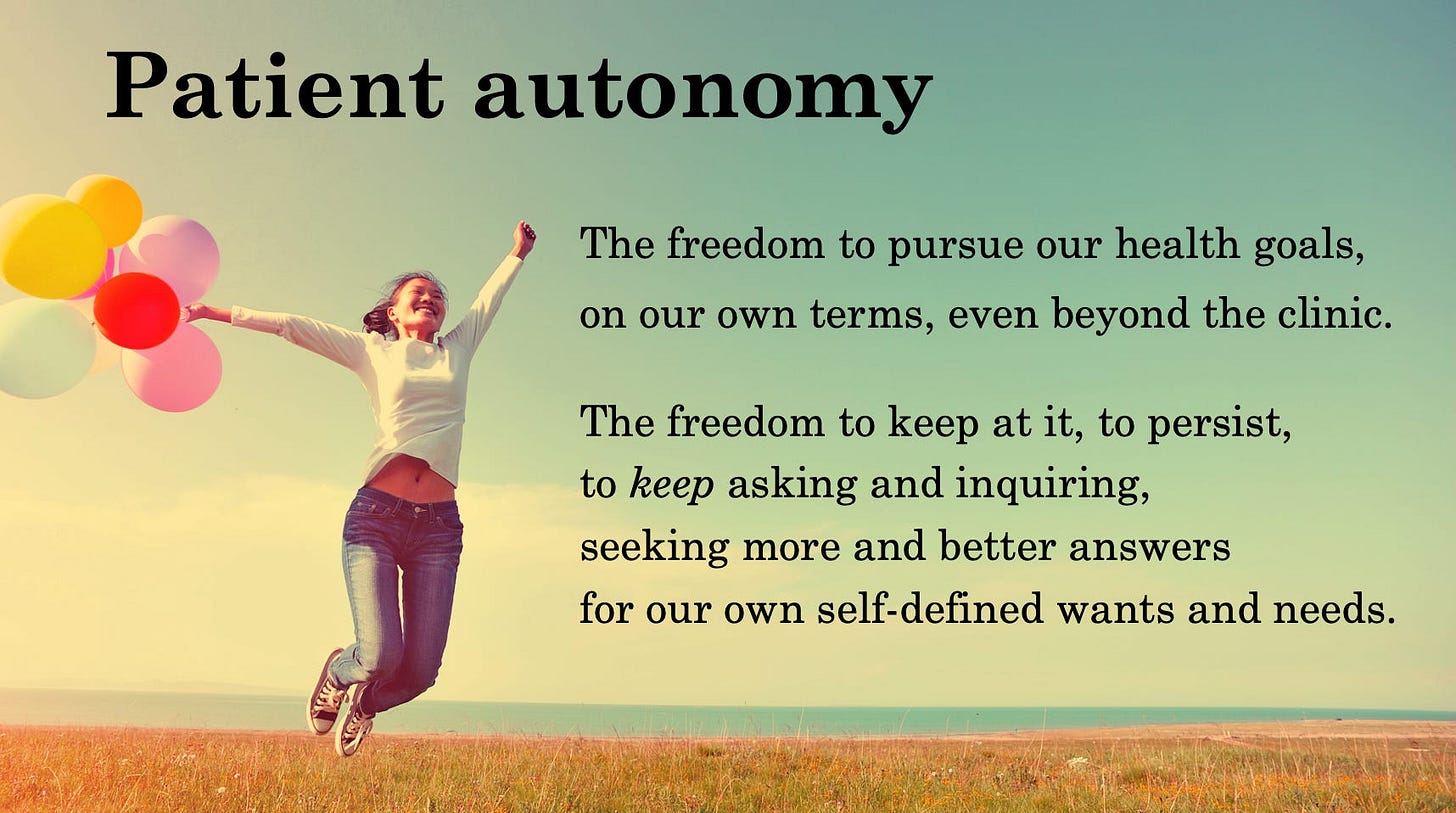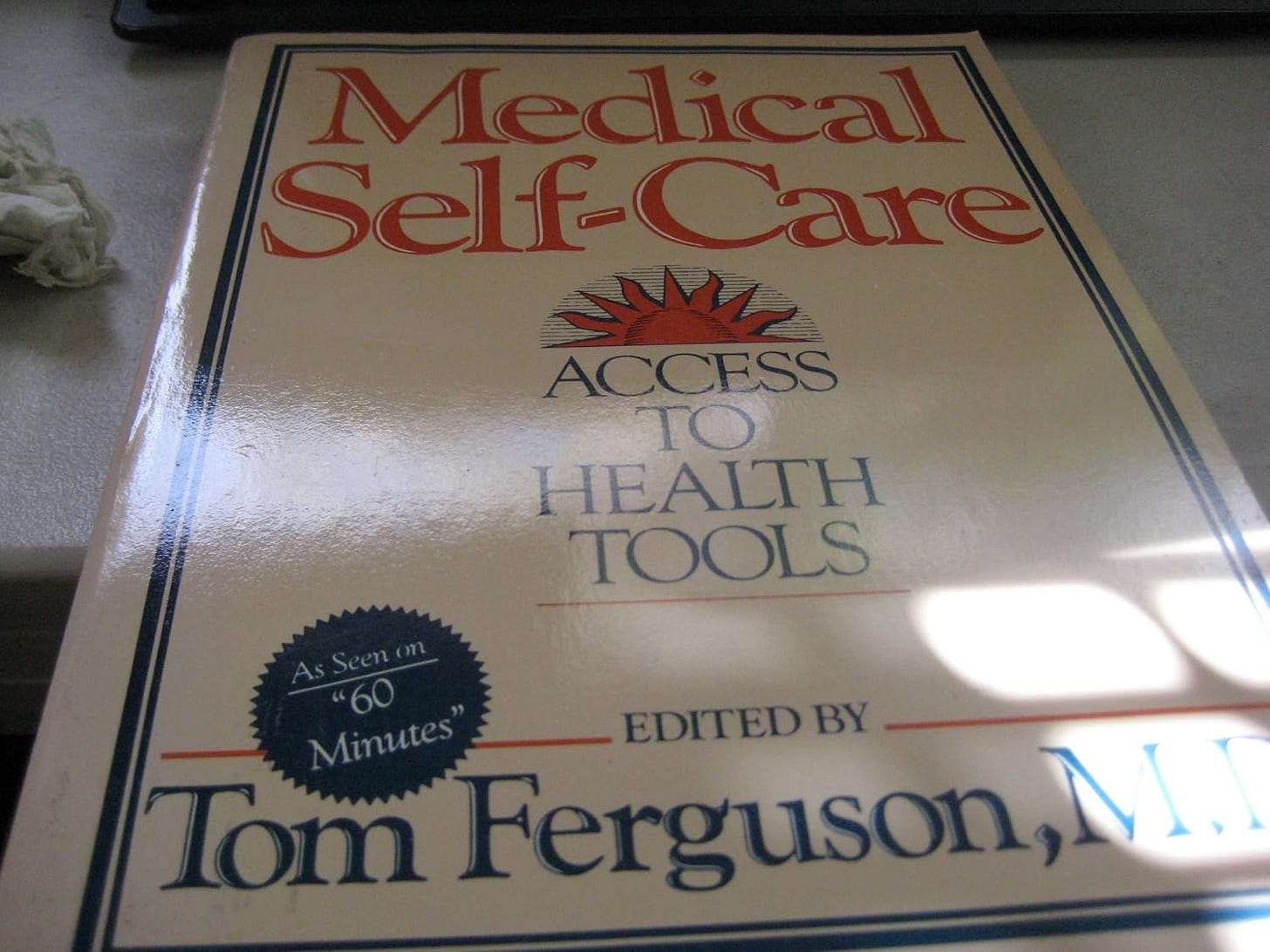Let the light shine on us all: democratize genius — with AI
Andrew Ng co-founded Google Brain, which has already produced huge AI breakthroughs. At Davos he spoke of AI becoming "a tool to empower millions." What if we strip away its velvet ropes?
Graphic by Gilles Frydman using Dall-E, on his post Let’s Power the Light of Human Potential
When the thoughts of radicals like us :) show up at the rich kids’ party, something important is changing. And we're seeing signs that it’s happening now with AI as a democratizing force … which shows promise for the patient autonomy we seek. Here’s that closing slide from my Berlin speech last October:
The World Economic Forum’s annual January gathering in Davos is as big and significant as any gathering of power brokers gets. One speaker there was Andrew Ng. This guy has business chops and AI chops: he founded the online learning company Coursera, which generates revenue of about $2,000,000 a day, and in 2011 he co-founded Google Brain, which produced many AI breakthroughs and influenced AlphaGo, the system that beat the world’s best Go player. He knows what lies ahead.
And at Davos this year, he said what we’ve been thinking about AI:
If we make it accessible to everyone, it becomes a powerful tool to empower millions.
We in the #PatientsUseAI movement can sense something on the horizon. As someone said recently, “You can sense the AI” in how things are unfolding.
The other day Gilles Frydman published a deeper thought piece about Ng at Davos, on his own Substack: Let’s Power the Light of Human Potential. Read it. Here’s an excerpt - what beautiful thoughts:
What if We Stripped Away the Velvet Ropes?
What if we democratized genius—not by devaluing expertise but by sharing its raw materials openly, using AI? Imagine this:
• A group of teenagers in Nairobi combine global knowledge with their unique perspective and context. Accessing MIT’s Koch Institute for Integrative Cancer Research lectures for free and using AI to combine with knowledge of local plants they could propose research into novel, plant-based therapies.
• A single mother diagnosing her symptoms with AI as nuanced as a seasoned physician.
• A farmer in remote Montana is experiencing chest pain after a long day of physically demanding work. The nearest hospital is hours away, and no local doctors are available. AI could step in to save a life by providing:
1. Real-Time Symptom Assessment
2. Vital Sign Monitoring and Risk Analysis
3. Immediate Guidance and Triage with Step-By-Step Instructions
4. Emergency Dispatch
Note, this isn’t just fantasy. Things of this sort are already happening today.
And never forget - this isn’t just for patient benefit; it helps the overburdened health system, too. Any lesser medical work that we can do ourselves will save workload and money. (That will be bad news for the people who want more medical spending, but good news for everyone else.)
Oh, and one more thing … this isn’t just the future - it’s from the past. It’s what we’ve been working toward for decades:
Medical self-care.
In 1980 e-patient pioneer Doc Tom Ferguson, MD published practical information for patients and families, and called it Medical Self-Care. And that’s exactly what #PatientsUseAI is. If we can figure out how to do this at scale, it can truly become “a powerful tool to empower millions.”






A let’s call it “Medical Self-Care Tools for the AI Era” is exactly what I have started working on right now.
As a family physician retired from practice, the overemphasis on the AI healthcare shiny objects really made me wonder “What about the rest of us, like my former patients?”
Then, serendipity had me stumble across your Substack.
Thus, I started with learning AI and LLMs. What it is, what it isn’t, strengths, weaknesses, and how can it be SAFELY and effectively used by people from all walks of life.
Fascinating journey thus far.